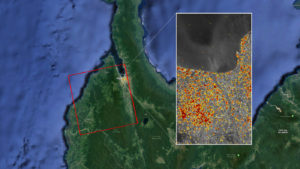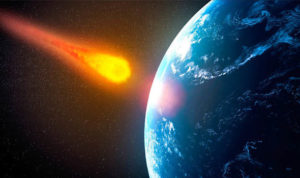Washington, 03 Rajab 1437/10 April 2016 (MINA) – Global warming could make the planet far hotter than currently projected because today’s scientific models do not correctly account for the influence of clouds, researchers said this week.
The study in the journal Science was led by researchers at Yale University and Lawrence Livermore National Laboratory, Mi’raj Islamic New Agency (MINA) quoted thestar.com
as reporting.
When climate scientists look ahead to how much the planet’s surface temperature may warm up in response to a doubling of carbon dioxide — a byproduct of fossil fuel burning — they typically predict a rise of between 2.1 and 4.7 degrees Celsius (3.75 to 8.5 degrees Fahrenheit).
But these models overestimate the ability of clouds to reflect back sunlight, and counteract warming in Earth’s atmosphere, researchers said.
Also Read: UN Security Council Adopts US-backed Resolution to Deploy International Force in Gaza
“We found that the climate sensitivity increased from four degrees Celsius in the default model to five to 5.3 degrees Celsius in versions that were modified to bring liquid and ice amounts into closer agreement with observations,” said lead author Ivy Tan, a researcher at Yale University.
The problem is most models assume there is more ice in clouds than there actually is.
Icier clouds would gain more liquid in a warming environment, and more liquid in clouds would mean less global warming.
“Most climate models are a little too eager to glaciate below freezing, so they are likely exaggerating the increase in cloud reflectivity as the atmosphere warms,” said co-author Mark Zelinka.
Also Read: Former Bangladesh PM Sheikh Hasina Sentenced to Death
“This means they may be systematically underestimating how much warming will occur in response to carbon dioxide.”
Researchers said their findings add to previous studies that have suggested clouds may make warming worse, rather than lessen it.
“The evidence is piling up against an overall stabilizing cloud feedback,“ said Zelinka. “Clouds do not seem to want to do us any favors when it comes to limiting global warming.”
The study was funded by NASA and the Department of Energy’s Office of Science. (T/R07/R01)
Also Read: Trump Considers F-35 Jet Sale to Saudi Arabia
Mi’raj Islamic News Agency (MINA)































 Mina Indonesia
Mina Indonesia Mina Arabic
Mina Arabic